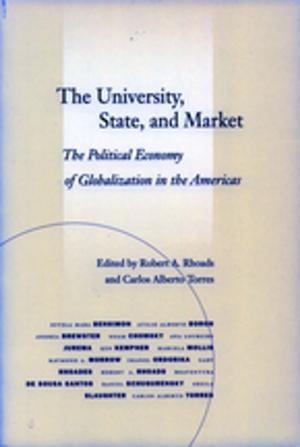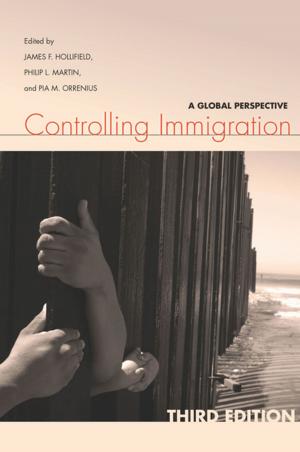Securing Freedom in the Global Commons
Nonfiction, Social & Cultural Studies, Political Science, International, International Security| Author: | ISBN: | 9780804775991 | |
| Publisher: | Stanford University Press | Publication: | February 10, 2010 |
| Imprint: | Stanford Security Studies | Language: | English |
| Author: | |
| ISBN: | 9780804775991 |
| Publisher: | Stanford University Press |
| Publication: | February 10, 2010 |
| Imprint: | Stanford Security Studies |
| Language: | English |
The new millennium has brought with it an ever-expanding range of threats to global security: from cyber attacks to blue-water piracy to provocative missile tests. Now, more than ever then, national security and prosperity depend on the safekeeping of a global system of mutually supporting networks of commerce, communication, and governance. The global commons—outer space, international waters, international airspace, and cyberspace—are assets outside of national jurisdiction that serve as essential conduits for these networks, facilitating the free flow of trade, finance, information, people, and technology. These commons also comprise much of the international security environment, enabling the physical and virtual movement and operations of allied forces. Securing freedom of use of the global commons is therefore fundamental to safeguarding the global system. Unfortunately, the fact that civil and military operations in the commons are inherently interwoven and technically interdependent makes them susceptible to intrusion. This intrinsic vulnerability confronts the international defense community with profound challenges in preserving access to the commons while countering elemental and systemic threats to the international order from both state and non-state actors. In response, the authors of this volume—a team of distinguished academics and international security practitioners—describe the military-operational requirements for securing freedom of action in the commons. Collaborating from diverse perspectives, they examine initiatives and offer frameworks that are designed to minimize vulnerabilities and preserve advantages, while recognizing that global security must be underscored by international cooperation and agreements. The book is written for security professionals, policy makers, policy analysts, military officers in professional military education programs, students of security studies and international relations, and anyone wishing to understand the challenges we face to our use of the global commons.
The new millennium has brought with it an ever-expanding range of threats to global security: from cyber attacks to blue-water piracy to provocative missile tests. Now, more than ever then, national security and prosperity depend on the safekeeping of a global system of mutually supporting networks of commerce, communication, and governance. The global commons—outer space, international waters, international airspace, and cyberspace—are assets outside of national jurisdiction that serve as essential conduits for these networks, facilitating the free flow of trade, finance, information, people, and technology. These commons also comprise much of the international security environment, enabling the physical and virtual movement and operations of allied forces. Securing freedom of use of the global commons is therefore fundamental to safeguarding the global system. Unfortunately, the fact that civil and military operations in the commons are inherently interwoven and technically interdependent makes them susceptible to intrusion. This intrinsic vulnerability confronts the international defense community with profound challenges in preserving access to the commons while countering elemental and systemic threats to the international order from both state and non-state actors. In response, the authors of this volume—a team of distinguished academics and international security practitioners—describe the military-operational requirements for securing freedom of action in the commons. Collaborating from diverse perspectives, they examine initiatives and offer frameworks that are designed to minimize vulnerabilities and preserve advantages, while recognizing that global security must be underscored by international cooperation and agreements. The book is written for security professionals, policy makers, policy analysts, military officers in professional military education programs, students of security studies and international relations, and anyone wishing to understand the challenges we face to our use of the global commons.















